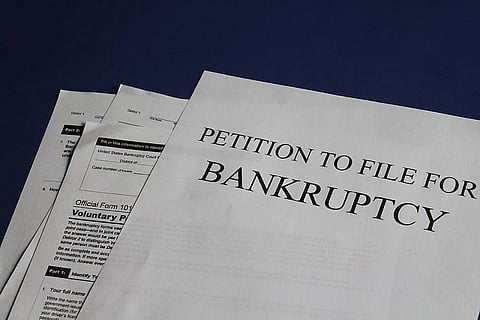

By Manish Jha and Vishrutyi Sahni
The Ministry of Finance is considering suspension of insolvency proceedings for six months from April 30, 2020, to extend relief to corporate borrowers affected by the pandemic. Recently, the Cabinet approved the six-month proposal, extendable up to one year, by introducing an enabling provision in the form of an ordinance.
While the measure may be dressed up as a leeway to assist corporate borrowers during this distressed economic phase, it is detrimental to the interest of lenders, with ramifications on all stakeholders, and must be addressed.
Suspension of Corporate Insolvency Resolution Process (CIRP)
The CIRP can be initiated by a financial creditor under Section 7, an operational creditor under Section 9, or a corporate applicant under Section 10 of the Insolvency and Bankruptcy Code, 2016 (“IBC”). A complete suspension would mean no one would be allowed to initiate any insolvency resolution proceedings for a period of six months.
The ministry’s reason for the CIRP suspension is to prevent companies at large from being forced into insolvency proceedings due to payment defaults of EMIs, long-term loan premiums, trade debts, wages, operational dues (electricity bills, supplies of raw materials), etc.
Imposing a CIRP suspension and the impact of the notified increase in insolvency threshold will constrain operational creditors to redress default claims before the already overburdened civil courts. It would defeat the purpose of the formalized bidding mechanism delineated under Section 10 of the IBC that gives companies an option to restructure themselves.
Therefore, companies willing to submit themselves to insolvency due to economic losses incurred during the pandemic would also be left without any recourse.
What happens to lenders?
Suspension is also not in the interest of lenders. This proposal appears to have failed to consider that many lenders may not survive the burden of consolidated bad debts, particularly individual operational debtors who will have no recourse for non-payment of supply of goods and services. Similarly, if financial institutions declare delayed debt enforcement, or in some cases even bad debt, it is bound to increase the burden of an already stressed financial system.
Relief for borrowers, no corresponding measures for lenders
This lopsided relief measure may not stand the test of equality and fairness, even if it is contended to be in the public interest. The suspension of initiating CIRP rights for six months may be an interim relief for borrowers, but it fails to address corresponding distress on lenders faced with the same economic backlash of the pandemic.
Small-scale operational debtors cannot initiate action for payment of goods and services, but they are not absolved from their contractual obligation to continue delivering goods to potentially healthy, large-scale corporate debtors.
Liquidation under other regimes not addressed
A corresponding regime needs to be introduced in other judicial fora to prevent enforcement and sale of corporate debtors and assets, which may also lose value due to the pandemic. If not, it would defeat the intention of benefitting all borrowers and the relief would be limited only to companies under the IBC regime.
In the event of suspension on initiating insolvency, deliberate defaulters will have an unfair opportunity to absolve, or at least defer, liabilities. It is essential for the suspension relief to extend only to genuine defaulters, by requiring strict proof before extending them the CIRP advantage.
Moreover, devoid of such a distinction, intended beneficiaries of this relief, i.e. COVID-defaulting corporate debtors, will not be sufficiently safeguarded in this window of six months to one year, because the short-term RBI measures overlap with the lockdown period, but the economic impact of the lockdown may only be faced by lenders and borrowers thereafter. The RBI loan moratorium/deferment, for example, is for a period of three months until May 31, 2020, and the national lockdown itself has been directed until end of May.
Instead of a blanket suspension of the insolvency provision in the country, it may be prudent to make the framework more conducive to settlements under Section 12A of the IBC. During economic turbulence like the present, it may not be in the interest of the corporate sector to have instability in the management; therefore, settlements under Section 12A could actually facilitate continuity of the original management and control of the corporate. Moreover, it will augment the fundamental and original purpose of the IBC to sustain businesses as going concerns by resumption or continuing business activities.
The slew of IBC amendments introduced by the Central Government to mitigate the economic impact of the pandemic are undeniably laudable; however, there is striking apprehension about their considerable accompanying ramifications.
These repeated changes will create confusion and foster unpredictability in an already volatile market and will impact the confidence of domestic and foreign investors. The suspension measure has the potential to create more problems than it intends to address and, thus, it is imperative, if introduced, the measure incorporates appropriate provisions to address the aforementioned concerns, failing which the already stressed financial sector will crumble under its collateral damage.
Views expressed are personal
Manish Jha is Partner at Corporate Law Firm J Sagar Associates and Vishrutyi Sahni is an Associate with the same firm.